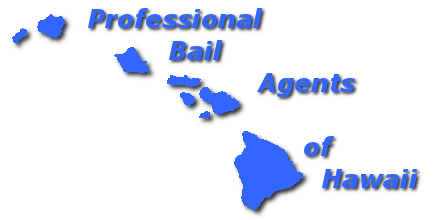BY MALIA ZIMMERMAN - Live Samuelu, the 21-year-old man accused of repeatedly raping a 13-year-old girl he met on Facebook earlier this year, pleaded not guilty in court on Monday to 7 sex assault charges.
Samuelu is being held at the Oahu Community Correctional Center until his October 8 trial unless he can come up with the required $250,000 bond. He is charged with sexually assaulting the child four times between March and April 18, 2013, while he was on probation for an earlier violent sex assault.
Two years ago, Samuelu came home intoxicated from work, and beat and raped his own 18-year-old cousin as she lay sleeping in their home.
He pleaded guilty to all 8 counts of sex assault in that case.
While he was sentenced to a year in prison, he spent less than 5 months behind bars, according to a spokesperson for the Honolulu city prosecutor.
Samuelu was supposed to be closely monitored for the next five years in Hawaii’s Opportunity Probation with Enforcement program – also known as HOPE Probation – an innovative program developed by Circuit Judge Steven Alm in 2004 that requires strict monitoring of parolees.
Samuela violated probation twice, first in May when he skipped a meeting with his parole officer. He was arrested on May 23, and went before Alm on May 28, sentenced to time served and released. The second time he violated probation was July 12, when he caught for consuming alcohol. He was back in custody on July 17 for allegedly sexually assaulting the 13-year-old girl.
Alm would not comment on Samuelu’s case, because it is active.
Samuelu isn’t the only HOPE probationer whose committed violent sex felonies while on strict supervision and monitoring.
Dewitt Lamar Long, 45, was caught by Honolulu police in the act of raping a 13-year-old girl, according to court records.
Hawaii Reporter on November 28 reported Long was charged with sexually assaulting the girl, then was charged with kidnapping and raping another underage victim who came forward to police and said Long had attacked her a year earlier in a motel near the airport.
Before that, Long was arrested nearly 100 times in Hawaii and traffic court also shows 100 previous charges against him since moving to Hawaii in the 1990s; his criminal record in California shows Long was convicted on felony firearms and drug and firearms.
Long was supervised by state probation officers for 12 years, and transferred to HOPE probation in 2007, but repeatedly avoided prison time despite numerous arrests during that period.
Alm, naturally the most adamant promoter and defender of the nearly decade-old HOPE probation program that he developed, said HOPE cannot stop every probationer from committing new crimes, but can deliver “swift, predictable, and immediate sanctions – typically resulting in several days in jail – for each detected violation, such as detected drug use or missed appointments with a probation officer.”
The program is now being replicated in several other states and being expanded in to a pretrial program in Honolulu, thanks to a nearly $790,000 grant from the John Arnold Foundation.
According to a statement from the foundation, “The grant will fund positions at the Department of Public Safety’s Intake Service Center to supervise and drug test HOPE Pretrial defendants, a deputy sheriff to serve any arrest warrants, and a part-time deputy prosecutor and public defender to prepare for and handle any needed violation hearings in court. The funds will also provide for drug testing, any needed confirmation tests, and outpatient and residential treatment.”
Honolulu City Prosecutor Keith Kaneshiro has been the most outspoken critic of the HOPE program, saying it takes away valuable resources from the justice system. Kaneshiro would not comment on the success rate of HOPE Probation when it comes to sex offender cases.
The Samuela and Long cases may be used next legislative session as another example of why Hawaii needs tougher sex offender laws.
This past legislative session, state senators debated whether penalties for sex offenders should be boosted to an either 7 year or 25 year minimum sentence, but they failed to pass out either proposal to the House.
Hear from Judge Steven Alm about his HOPE Probation program

